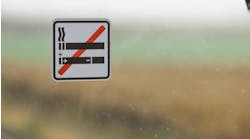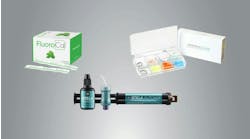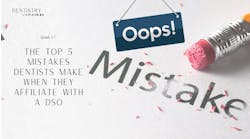Michael Woloch, DDS, CFP
We all complain about paying taxes. That's understandable, considering how much of our hard-earned income we have to give up. It's just a fact of life that we can't avoid, so the best approach is to spend our energy not on being frustrated, but by actively doing our best to lower our tax bill.
Do not assume that your tax preparer will search for every possible way to lower your taxes. Their primary obligation is to correctly complete your return. It's up to you to be proactive in "looking under every rock" for opportunities to use the tax code to your advantage. Every dollar you save goes into your pocket!
These are generally "use it or lose it" deductions, so it is very important to make sure you are taking full advantage of each one that applies to you.
Contributions to IRA, 401(k), and similar plans
To encourage us to save for our own futures, the government does not tax us on the money we put into these plans. For example, someone with a $100,000 income who puts $20,000 into a 401(k) plan will only pay taxes on $80,000 of the income-an immediate savings that can be worth over $6,000. Furthermore, as the amount saved in the 401(k) accumulates interest and dividends and increases in value, there is no tax (currently) paid on these gains. Of course, tax eventually will be paid on money that is withdrawn from this account, but only at the time it is withdrawn (hopefully in retirement).
Interest on student loans
You can deduct up to $2,500 per year for interest payments (not principal) on student debt. Note: This deduction may be limited by your total income.
Job-related expenses
These include ADA and other professional association dues, uniforms, professional meetings/courses, job search costs, and travel for work (but not commuting). Keep track of these during the year and review them at tax time.
Excess FICA taxes
Do you have more than one job? This includes having your own practice and an outside position. Each employer may be withholding FICA taxes from your salary, which often results in too much FICA tax being withheld. There's no way to prevent this, but reporting it on your tax return correctly is the only way you'll get it back.
Capital loss
Did you sell (cash out of) a mutual fund, stocks, or bonds at a lower price than you bought it? This loss can offset gains that you realized in the same year or, if you had no gains, reduce your income by up to $3,000 (and therefore your taxes). Some people intentionally sell some securities at a loss each year, so they can use it to generate that tax savings. This is called "tax harvesting."
Capital gains
You're taxed on gains in the year you realize them. But this tax can be avoided if you use these strategies:
1. If you were planning on making a charitable donation, don't sell the securities (mutual fund, etc.). Instead, donate them (instead of cash) to the charity. The charity will not pay any tax on the sale. For example, if you bought a stock for $3,000 and now it's worth $8,000, donate that stock to the charity. You won't pay any tax on the gain, but will get the full $8,000 charitable deduction!
2. Another strategy is to gift the stock to someone who you wish to help financially, such as your adult child, grandchild, or parent, instead of giving cash. If their income is lower than yours, they may pay less tax or no tax when they sell it.
It's best to check your return before you submit it, to see if all of the deductions you found actually appear on your return. Honestly, the famous "form 1040" is basically readable. Reviewing it will confirm that you will be rewarded for your diligence.
Michael Woloch, DDS, CFP, is a registered investment advisor and president of Financial Strategy Advisors LLC. Michael uses his knowledge of finance and experience as a practicing prosthodontist to guide fellow dentists to realize their financial goals. Contact Michael at [email protected] or (646) 856-7680.





